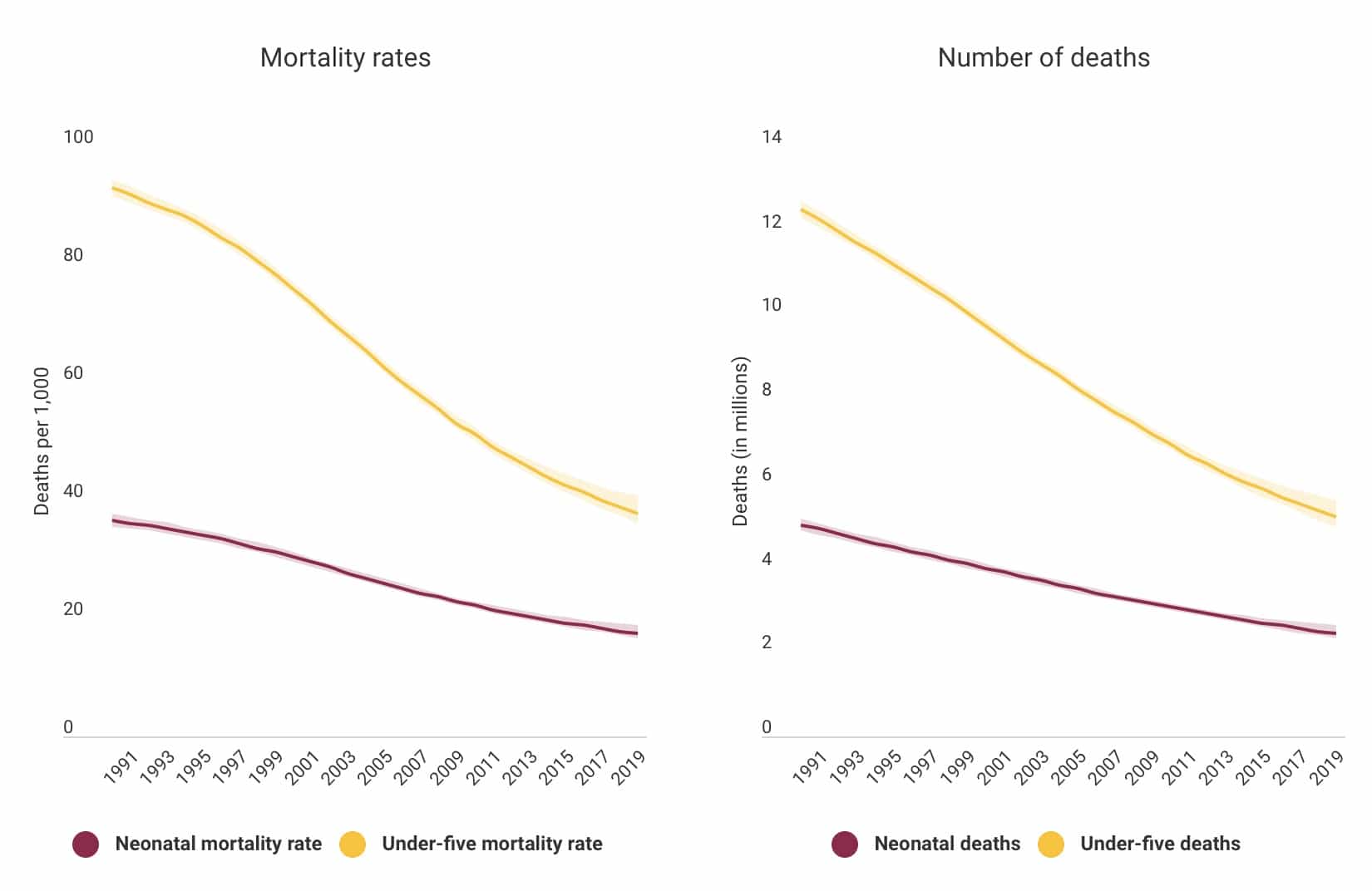
Fewer children die than ever before, according to recent statistics from UNICEF.
In demography, child mortality is defined as children who die before the age of five, while infant mortality refers to children who die before the age of one.
Global child mortality has dropped dramatically since 1990. At that time, 93 children out of 1,000 died. In 2019, 38 children out of a thousand died. This is a decrease from 9.3 to 3.8 percent.

Despite these enormous advances, great efforts are still needed in this area. In 2019, approximately 14,000 children died before reaching the age of five every day on earth. This is an unacceptably high figure given that most deaths are fully preventable with current methods and treatments.
Most regions in the world, 149 out of 195 countries, halved child mortality between 1990 and 2019. Among all countries, 44 percent reduced their child mortality by at least two-thirds during the period. 34 of them are countries with low or low average incomes, which indicates that even if child mortality is unevenly distributed throughout the world, it is possible to improve children’s survival rates even in environments with limited resources.
In Sweden, child mortality in 2017 was 0.28 percent and in India 3.94 percent. As a reference, infant mortality in Sweden was 1.96 percent in 1960 and 24.20 percent the same year in India, according to Our World in Data .





